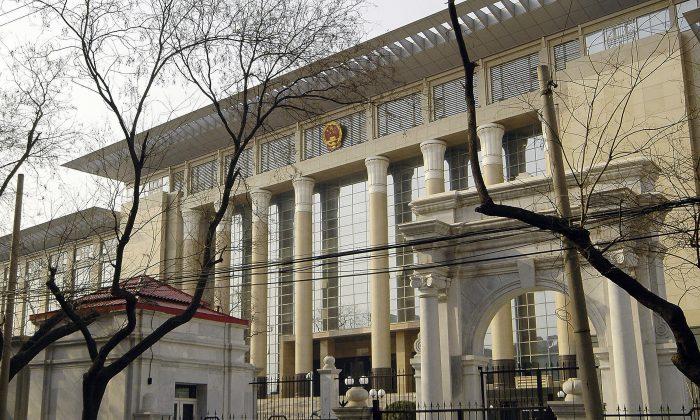The Chinese regime’s highest court issued a detailed interpretation of a criminal procedure law on Feb. 4, stipulating that trial in absentia can be applied to defendants who “seriously endanger national security” and are based outside China, according to Chinese media reports.
“Trial in absentia” refers to criminal proceedings in which a defendant is not physically present to attend said proceedings.
China observers worry that the move is aimed at intimidating Chinese dissidents who live abroad.
In 2018, China’s rubber-stamp legislature, the National People’s Congress, enacted amendments to its criminal procedure law to allow more courts to try people in absentia. But it was not until this month that China’s Supreme Court gave a clear legal interpretation of it. The guidance will be implemented on March 1 this year.
The court defined “crimes of endangering national security” as “organizing, planning, and implementing division of the country, undermining national unity, inciting to split the country, subversion of state power, overthrowing the socialist system by spreading rumors, slander, and other means.”
In an interview with The Epoch Times, China-based media commentator Wu Te said that the Chinese Communist Party’s (CCP) move was clearly intended to intimidate overseas dissidents and to legalize its financial persecution of dissidents such as through suspending their Chinese pensions, confiscating their properties in China, and freezing their bank accounts.
For example, Cai Xia is a former professor at Beijing’s Central Party School, the top school for training Party cadres. Cai retired in 2012 and moved to the United States in 2019. Since retirement, she has become an outspoken critic of Beijing.
Chen said at times, Chinese authorities also cut off the income of their immediate family members, relatives, and friends, and confiscate their properties. As a result, some Chinese intellectuals are afraid to speak up against the CCP.
Wu believes that although the CCP’s actions will cause considerable losses to overseas dissidents who have assets in China, it is impossible for the Party to completely silence them; as most of these dissidents live overseas, they have freedom of speech. In turn, the CCP’s latest move would only make overseas dissidents even more angry and compel them to sever ties with the CCP completely, Wu said.




